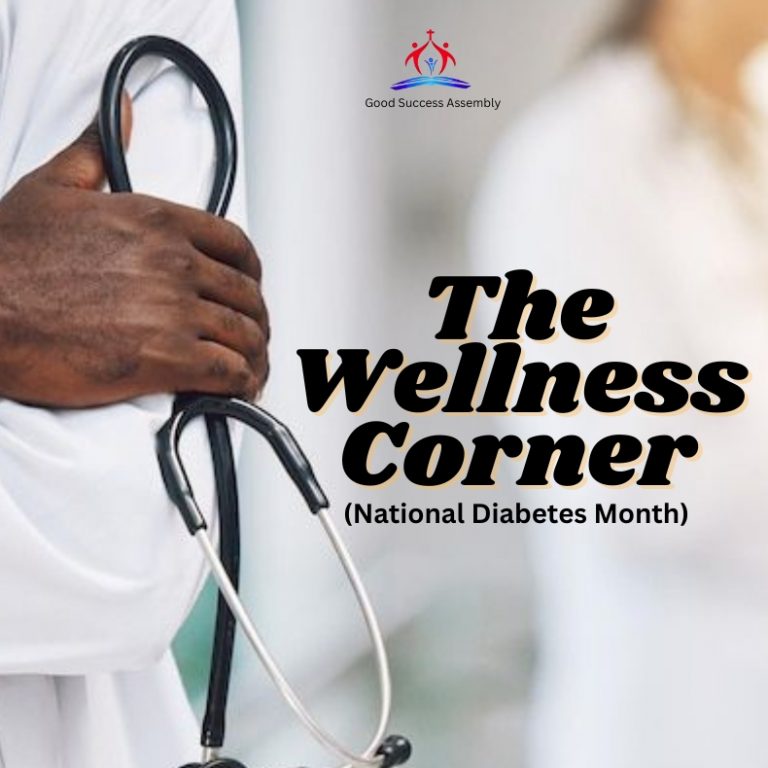3 John 1:2 – “Beloved, I pray that in every way you may succeed and prosper and be in good health
[physically], just as [I know] your soul prospers [spiritually].”
National Diabetes Month
November is National Diabetes Month, a time to raise awareness about diabetes, support those living
with it, and encourage healthy habits that can prevent or manage the disease.
What is Diabetes?
Diabetes is a chronic condition that affects how your body processes blood sugar (glucose). If not
managed, it can lead to serious complications like heart disease, stroke, kidney failure, vision loss, and
nerve damage.
There are two main types:
Type 1 Diabetes – Often diagnosed in children and young adults; the body does not produce
insulin.
Type 2 Diabetes – More common; the body does not use insulin properly. Often linked to lifestyle
and can be prevented or managed with healthy habits.
Risk Factors
Are overweight
Are age 45 or older
Have a family history of diabetes
Are physically inactive
Have high blood pressure or high cholesterol
Common symptoms include:
Increased thirst or hunger
Frequent urination
Unexplained weight loss
Fatigue
Blurry vision
Slow-healing sores
Take Steps Toward Prevention & Control
Get screened – Especially if you have a family history or are over age 40.
Eat balanced meals – Include more vegetables, whole grains, lean proteins, and fiber.
Stay active – Aim for at least 150 minutes of moderate exercise (e.g. walking, jogging) per week.
Maintain a healthy weight – Even small weight loss can improve blood sugar control.
Take medications as prescribed – If you’re living with diabetes, follow your treatment plan
closely.
Monitor your health – Keep track of your blood pressure, cholesterol, and glucose levels.
Find a balance – Medications and a balanced diet work together, so it’s important to not neglect
either.
Fasting – If you’re on a fast, do not take your diabetic medications to avoid hypoglycemia (low
blood sugar). If you’re unsure, consult your healthcare provider.
Let’s use this month to care for ourselves and our families through education, action, and support. Share
this message with someone you love—and remember, small changes can make a big difference.
If you have any questions or concerns, please consult your healthcare practitioner.
Stay well and be blessed,
Dr. Funmi Kayode (MD) and Dr. Bukola Folorunso (PharmD)



